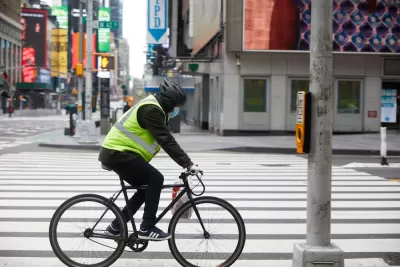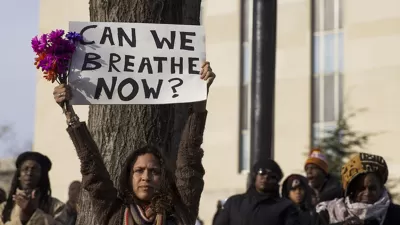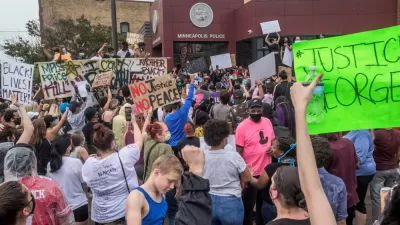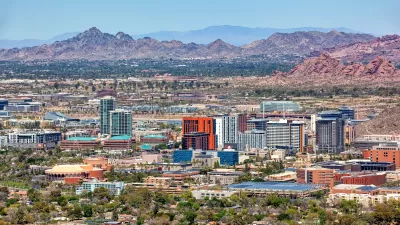As biking gains popularity as a transportation mode during the pandemic, planners are called on to elevate the role of "invisible cyclists"—people of color on bikes—in the process of redesigning and re-engineering streets.

An article by Julian Agyeman, professor of Urban and Environmental Policy and Planning at Tufts University, calls on city planners, lawmakers, and bike advocates to better address and remove barriers to cycling for people living in poorer neighborhoods, in a time when more and more people are using the bike as a primary mode of transportation.
Design-related, infrastructural challenges, such as providing more bike lanes, or better still, protected bike lanes – paths separated from both road and sidewalk – are important. But the more fundamental barriers are political, cultural and economic in nature. Failure to acknowledge and act accordingly, risks compromising the ability of low-income and minority groups to enjoy the full benefits of cycling.
The article details the history of bike advocacy, which has tended to produce outcomes in keeping with the whiteness of its constituency—bike lanes have face criticism as a harbinger of gentrification along the way, for example. But according to Agyeman, who provides evidence to back this claim, there are many people of color who also advocate for safe bike infrastructure, they just go "unrecognized, underreported and unrepresented."
"Cyclists of color tend to miss the eye of city planners, but the same can’t be said of the law," according to Agyeman, who provides plenty of evidence that people of color on bikes are policed in a completely different way than white people on bikes. This is one of the discriminatory facts of life in the public realm that advocates argue will perpetuate racial inequality in planning for ostensibly progressive causes like bike infrastructure and traffic safety.
"As cities reimagine their streets in a post-pandemic world, politicians, city planners and bike advocates could better recognize that cyclists have differing status, rights, needs and capabilities depending on their social and racial background," according to Agyeman.
FULL STORY: Poor and black ‘invisible cyclists’ need to be part of post-pandemic transport planning too

Planetizen Federal Action Tracker
A weekly monitor of how Trump’s orders and actions are impacting planners and planning in America.

Congressman Proposes Bill to Rename DC Metro “Trump Train”
The Make Autorail Great Again Act would withhold federal funding to the system until the Washington Metropolitan Area Transit Authority (WMATA), rebrands as the Washington Metropolitan Authority for Greater Access (WMAGA).

The Simple Legislative Tool Transforming Vacant Downtowns
In California, Michigan and Georgia, an easy win is bringing dollars — and delight — back to city centers.

The States Losing Rural Delivery Rooms at an Alarming Pace
In some states, as few as 9% of rural hospitals still deliver babies. As a result, rising pre-term births, no adequate pre-term care and "harrowing" close calls are a growing reality.

The Small South Asian Republic Going all in on EVs
Thanks to one simple policy change less than five years ago, 65% of new cars in this Himalayan country are now electric.

DC Backpedals on Bike Lane Protection, Swaps Barriers for Paint
Citing aesthetic concerns, the city is removing the concrete barriers and flexposts that once separated Arizona Avenue cyclists from motor vehicles.
Urban Design for Planners 1: Software Tools
This six-course series explores essential urban design concepts using open source software and equips planners with the tools they need to participate fully in the urban design process.
Planning for Universal Design
Learn the tools for implementing Universal Design in planning regulations.
Smith Gee Studio
City of Charlotte
City of Camden Redevelopment Agency
City of Astoria
Transportation Research & Education Center (TREC) at Portland State University
US High Speed Rail Association
City of Camden Redevelopment Agency
Municipality of Princeton (NJ)





























